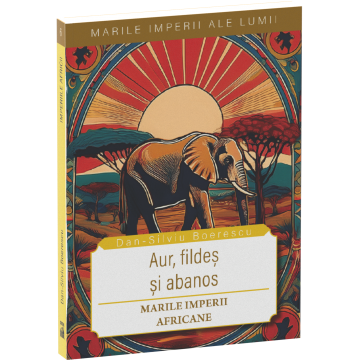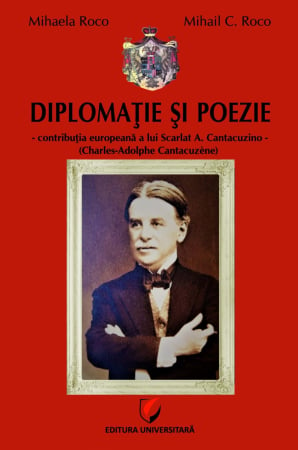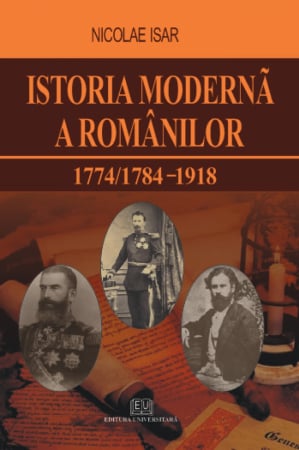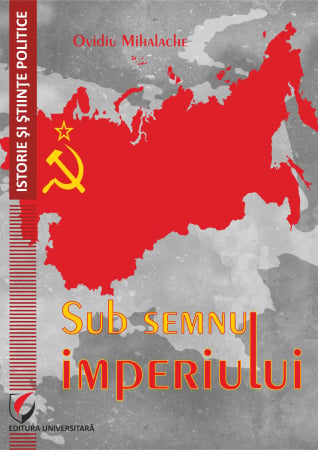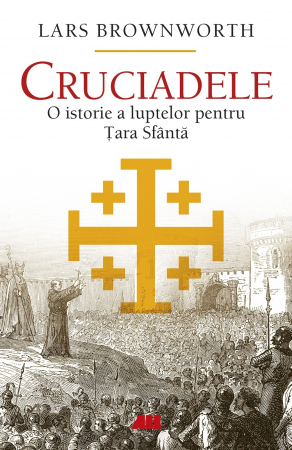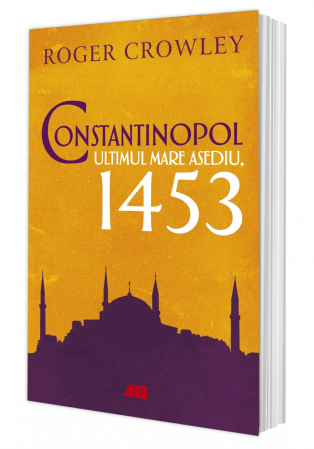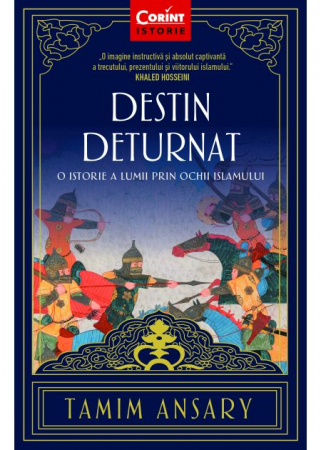ISBN: 978-973-749-834-2
Publisher year: 2011
Edition: I
Pages: 212
Publisher: Editura Universitară
Author:
- Description
- Download (1)
- Content
- Authors
- Reviews (0)
Roma (Gypsies) in Romania - historical and geographical approach consists in a special issue in human geography and landscape Romanian historiography, due mainly to its multidisciplinarity, in addition to the two disciplines mentioned above have contributed to them and other auxiliary sciences of geography and history or independent: demography, statistics, sociology, anthropology or geopolitics.
This book appears under the auspices of the "Research Center for Regional Development and European Integration", University of Bucharest, the authors were its founders (Silviu Costache - director, Daniel Dieaconu - research team leader "European Integration").
This study is intended to be a part (first volume) of a larger work. Temporal ends with emancipation. The second volume will complete the book, showing the evolution of the Romanian ethnic group on earth until the current period.
The term "Gypsy" is considered by today's social and cultural organizations of the population to be pejorative. It is considered that had a social connotation, referring to slavery and that is offensive in nature today. They prefer the term "Roma" or "Roma", which appeared in the Romanian space with the birth of organizations (Gypsy or Roma) formed on ethnic bases.
For the period covered by this study, the term used in the Romanian space is "Gypsy" as it appears in many documents you have used or quoted. That is why we use the term "Gypsy", without thinking to offend anyone. In the second volume, for ages that appeared in the Romanian word "Roma", we will use it.
We wanted to capture as many of the features that have defined the evolution of Gypsies (Roma) on the first Romanian land now and the emancipation. Lately it has been written about Gypsies (Roma), and now they are "fashionable". But still we know very little about this ethnic group, especially their ancient history. Many aspects are not understood, have created negative stereotypes, prejudices which have passed over the centuries. It aims to integrate them, but means that the first is necessary to know the history, traditions, customs of ancestral way of life specific to this ethnic group which was among other prominent individual populations who lived in the Romanian space.
The motivation of our approach was to know (and no doubt was a theme that has incited the research, the discovery) and to provide for knowledge. History and human geography have joined with the hope of contributing to the solidification of an image as complex as complete and, moreover, as accurate, more objective. In terms of authors, lacking passion, why achieving this is only a scientific study. References used was very broad, covering a wide spectrum information archives, collections of documents, general works on medieval and modern history of Romania, the literature on Gypsies made by Romanian and foreign authors, fiction, Romanian or foreign and also I had to carefully time many books in the second half of the nineteenth century and first decades of the twentieth century until the establishment of the communist regime. Thank Municipal Library "G.Ţ. Kirileanu "Mrs. Cristina Catan, for its support for volumes of old books in the" Fund GT Kirileanu "that we put them available for research and National Directorate Arhiveler Neamt County, Mr. Nicholas Dumitraşcu, the city library of Bicaz, Mr. Asavei, ladies and Calinescu. We also thank the University Library in Cluj-Napoca, Mr. Director Professor Doru Anca Ifrim Radosav and researcher for the volumes of old books and prints of the Fund "George Zion". Thanks gentlemen Alexandru Ungureanu and Codrin Bortişcă research work they did to Danica Bucharest for us, exploring and file thousand copies, especially on the interwar period (much more useful would be for the second volume) and teacher Mrs. Nicoleta Cantiuc in Lille, France.
Illustrating the book was made with vintage images and postcards from the collection of Piatra Neamt Nicolau Viorel, one of our editors, Photos of DJAN Fund German archives and journal "Civilization" and thank you for your cooperation Mr. and Mrs. Cornel Ilie Georgeta Dimisianu, editors of the journals that published more of our articles.
* * *
"This Razvan was born in Moldova from a Gypsy father and a moldovan mother. He entered the Polish Armia young man and is a distinguished bravery in the Poland war, was raised form simple soldier up to the highest levels of Poland rake, Stephen Bathory. Eventually, returning to Moldova entered the service of Prince Aron Voda which gives the rank of AGA and sent him to Sigismund Bathory ground. Then Razvan receive from its Hungarian Aron gvardiei command. He learned to love these soldiers themselves and succeed, as they saw, with the help of Bathory overthrow his master and thus gets his living and working on a throne that had been made worthy by his bravery (...) the road go to the bathroom from Suceava to date shown and Razvan's mound pomeneţte Voda, where lie the bones of the brave prince unforgettable people. Such terrible death that this man had his credit and the misery of the powder is raised to the throne of his country. Born Gypsy, a nation condemned to slavery for centuries, it still fu strong evidence that in the eyes of providence are chosen peoples and nations condemned, that it spreads both his mercies over all people, no nation Separate class, puind on head of each seal divine rights and declaring it to all mankind alike, in freedom, equality, to virtue and truth. "
Nicolae Balcescu, Romanian army power and military art
-
Rromii (Ţiganii) din România. Abordare istorico-geografică
Download
Summary / 9
Résumé / 17
Resüme / 27
Introducere / 37
Capitolul I
Istoricul cercetării / 41
Capitolul II
Conceptul de etnie la populaţia rromă / 48
Capitolul III
Originea ţiganilor (rromilor) şi migraţia lor spre Europa. Mit şi realitate / 58
Capitolul IV
Ţiganii (rromii) pe teritoriul României – primele atestări / 72
Capitolul V
Ţiganii (rromii) în spatiul românesc în Evul Mediu (sec. XIV‑sec. XVI) / 79
Răzvan‑Vodă, domnitorul ţigan al Moldovei / 93
Ţiganii din Transilvania în Evul Mediu / 96
Capitolul VI
Ţiganii (rromii) din spaţiul românesc din secolul al XVII‑lea până la 1821 / 102
1.1. Aspecte demografice / 103
1.2. Categorii de ţigani. Rolul ţiganilor în economia Ţărilor Române / 110
1.2.1. Robii domneşti / 111
1.2.2. Ţiganii mănăstireşti şi boiereşti / 120
1.2.3. Ţiganii lăutari în Evul Mediu românesc / 133
Capitolul VII
Situaţia juridică şi organizare socială / 139
Capitolul VIII
Familia la ţigani (rromi) – istorie şi antropologie, naştere, căsătorie şi moarte în lumina documentelor şi studiilor istorice / 153
Capitolul IX
Modul de viaţă. Aspecte fizico‑comportamentale / 166
Capitolul X
Dezrobirea ţiganilor / 182
Concluzii / 188
Studiu de caz / 192
Ţiganii din Dobrogea / 192
1.1. Ţiganii din Dobrogea de la primele aşezări până la 1878 / 192
1.2. Ţiganii din Dobrogea ‑ 1878‑1918 / 199
Bibliografie selectivă / 203

Silviu Costachie
Graduate of University of Bucharest (1995), the Master in the field of human settlements (1996) and Ph.D. in Geography (2003).
Associate Professor (2005) and dean of the Faculty of Geography (2008), Director ofResearch Center for Regional Development and European Integration (2009), a member of numerous national and international committees, representative of Romania in the IS0803 and IS1101 COST Actions Union Europe (2010).
Daniel Dieaconu

6359.png)
![Roma (Gypsies) in Romania. Historical and geographical approach [1] Roma (Gypsies) in Romania. Historical and geographical approach [1]](https://gomagcdn.ro/domains/editurauniversitara.ro/files/product/large/rromii-iganii-din-romnia-abordare-istorico-geografic-1915-275796.jpg)



